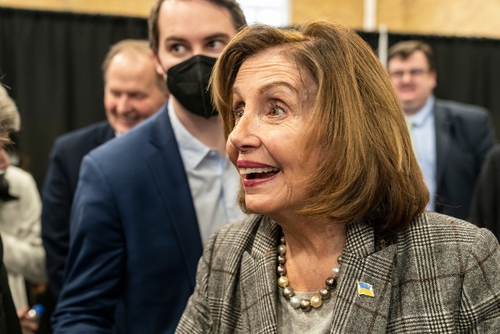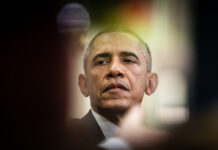
In a move that has caught the eye of many, Paul Pelosi, the husband of former Speaker of the House Nancy Pelosi, has made a significant investment in semiconductor giant Nvidia. This decision comes at a time when the Biden administration is actively bolstering the semiconductor industry with substantial subsidies, sparking concerns over potential conflicts of interest.
On November 22, financial disclosures revealed that Paul Pelosi purchased between $1 million and $5 million in call options for Nvidia, set to expire at the end of 2024 with a strike price of $120. This transaction occurred just as the CHIPS and Science Act, which promises $52 billion in stimulus to the semiconductor industry, is set to benefit companies like Nvidia by enhancing American production capabilities and competitiveness against Chinese technology.
Just in: The Senate just passed a massive $886 Billion dollar defense bill
Do Politicians own stocks that directly benefit from this? Of course they do
Many own stakes in defense companies like General Dynamics $GD, Lockheed Martin $LMT, & more
Here's who they are and how much… pic.twitter.com/PvTanDDTDF
— Nancy Pelosi Stock Tracker ♟ (@PelosiTracker_) December 20, 2023
The timing of this investment is particularly noteworthy given that it follows a previous purchase by Pelosi in June 2022, where he acquired up to $5 million in Nvidia stock right before a Senate vote on the subsidy bill. The proximity of these investments to legislative actions has raised eyebrows, with ethics experts pointing out the possibility of insider information being used to inform these trades.
Commerce Secretary Gina Raimondo disclosed on December 11 that discussions were underway with Nvidia regarding the types of chips the company could export to China. While the most advanced chips are off-limits due to sanctions imposed on the Chinese chip industry in October 2022, there is room for Nvidia to sell more basic chips. These sanctions aim to prevent sensitive technology from falling into Chinese hands, further emphasizing the strategic importance of the semiconductor sector.
Where Nancy Pelosi bought $KRTX.
Nothing to see here … 🔥🔥🔥
Members of Congress can legally trade stocks based on insider information. This is why Nancy keeps running for re-election. pic.twitter.com/P9APYXl4dC
— Wall Street Silver (@WallStreetSilv) December 22, 2023
Nvidia’s financial health appears robust, as evidenced by their third-quarter results announced on November 21, which showed a 34% increase in revenue from the previous quarter and a staggering 206% increase year-over-year. Such positive performance metrics may have influenced Pelosi’s decision to invest, although his office has not provided comments on the matter.
The intertwining of personal investments and public policy decisions is a delicate issue that warrants scrutiny. When individuals closely associated with political figures engage in market activities that align with governmental actions, it raises legitimate questions about the integrity of those investments and whether they benefit from non-public information or anticipated legislative outcomes.
This situation underscores the ongoing debate about the need for stricter regulations and transparency regarding the financial dealings of politicians and their immediate family members. Ensuring that public servants and their relatives do not profit from their positions of influence is crucial for maintaining public trust in the democratic process.
As the semiconductor industry continues to be a focal point of economic and geopolitical strategy, especially in light of tensions with China, the actions of those in power and their families will remain under the microscope. It is imperative that any semblance of impropriety be addressed to uphold ethical standards and safeguard the interests of the American people.
In conclusion, while investments in thriving industries like semiconductors can be seen as savvy financial moves, they must be balanced against the potential for conflicts of interest. As the government plays an increasingly active role in shaping the economic landscape, the need for vigilance and ethical conduct becomes ever more critical.











